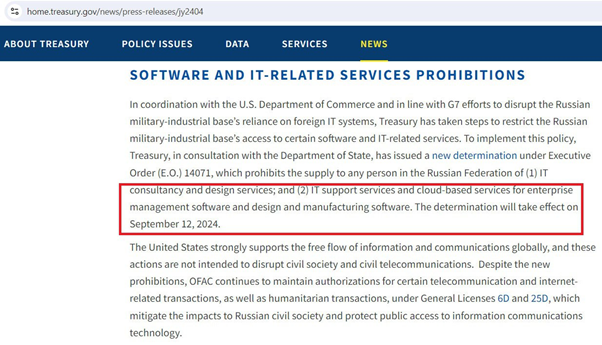Hello community!
This digest is dedicated to cloud solutions on the Azure platform and .NET technology. Here I will collect the most interesting materials, changes and news that I will share with you. If you have news that you would like to suggest or discuss, please join our Telegram channel at https://t.me/azureuacommunity . Thank you!
Welcome to this weekly Azure infrastructure update. This week we have a lot of innovations. Let’s get started!
Updating computing resources
Flexible VMSS orchestration mode
- NewThe flexible orchestration mode VMS S (VMSS Flexible Orchestration Mode) differs from the previous unified mode. With flexible mode, you can combine spot and non-spot instances and manage them more interactively.
- Attach/Detach feature is currently in preview, allowing you to add or remove VMs from your VMSS Flex set. This is especially useful for operations such as configuring or moving VMs between different Flex sets.
Flexible mix of VMSS instances
- You can now specify up to five different VM sizes in your profile and control their allocation, whether based on lowest cost or capacity optimization.
API Management Update
API Management Workspaces – Now GA!
- This feature allows organizations to group different APIs, products, and subscriptions together, providing improved isolation and control for development teams while maintaining centralized monitoring and regulatory compliance.
Network update
Azure Sphere device location – New feature
- Azure Sphere Device Locator now allows you to specify a device ID in the portal by providing a link to the device, related products, and device groups.
Azure Front Door WAF JavaScript Challenge – in preview
- This innovation is part of the bot management policy set and helps distinguish legitimate users from bots, adding an extra layer of protection for your web applications.
How it works
When JS Challenge is enabled on Azure WAF and a client’s HTTP(s) request matches a certain rule, the client is presented with the Microsoft JS Challenge page. The user sees this page for a few seconds while the browser performs the task calculation. The client’s browser must successfully complete a JavaScript task to receive an acknowledgment from Azure WAF. If the calculation succeeds, the WAF checks the request as originating from a bot and continues with other WAF rules. Requests that could not solve the task are blocked.
CORS requests are checked on each access attempt. If a client accesses a page from a different domain that calls a JavaScript task, it encounters the challenge again, even if it has successfully completed the challenge before.
Also, if the client has solved the task, but its IP address has changed, the task is issued again.
Here is an example page with a JavaScript task:

Repository update
Planned Customer -Managed Failover – in preview
- This new feature for Azure Storage allows you to schedule a failover to a backup center that maintains geo-redundant data storage without data loss, providing a much better experience than the previous unscheduled failover feature.
There are several scenarios in which planned failover can be used, including planned disaster recovery testing, a proactive approach to large-scale disasters, or recovery from non-storage failures.
- Self-Encrypting Drives : Now GA for Linux systems in Europe, USA and Japan. Uses hardware encryption, providing performance similar to BitLocker on Windows.
- Multi-Tier Support : Also GA, which allows you to assign data to different storage tiers directly on the Data Box.
Different
Cost management
- There are new updates to expense management, including support for exporting data toParquet format as part of the FinOps 1.0 initiative.
Retirements
- App Service Environment V1/V2 : Deprecated at the end of August – make sure you’re already on V3.
- API Management STV1 compute platform and Logic Apps integration service environment : Also retiring at the end of August.
- Azure Automation State Configuration: Deprecated on September 16, 2027, so you still have time.
- The Cloud Services (classic) deployment model will also be discontinued on August 31, 2024. Users need to migrate their services to Cloud Services (Extended Support) in Azure Resource Manager to avoid service disruptions.
.Net Core Update
Security improvements in .NET 8.0
In August 2024, .NET 8.0 fixed two vulnerabilities:
CVE-2024-38168: .NET Denial of Service Vulnerability
CVE-2024-38167: .NET Information Disclosure Vulnerability
.NET 6.0.33 and .NET 8.0.8 were released with bug fixes and updates to the runtime, ASP.NET Core, and SDK components.
Release notes and binaries are available for .NET 6.0 and .NET 8.0 updates.
Upcoming events and learning opportunities
Microsoft AI Cloud Partner Program : Certification Week is scheduled for September 23-27, 2024, with the goal of helping organizations prepare for advanced role certification in Azure and AI solutions. This event will include hands-on learning opportunities and technical knowledge aimed at small and medium-sized businesses.
Workshops: Various workshops are planned, including the Azure OpenAI Workshop and the Microsoft Fabric Workshop on modern data engineering, scheduled for late August and early September 2024.
Azure Developers – .NET Aspire Day 2024
Event date: September 18, 2024
This virtual event is for developers who want to improve their cloud development skills with .NET on Azure. Sessions will cover various topics, including integrating Azure services with .NET, optimizing cloud applications, and leveraging Azure OpenAI capabilities in .NET applications. Featured speakers include Brady Guster and Chris Ayers.
DEVintersection Las Vegas 2024 : Scheduled for September 9-12, 2024, this face-to-face event will focus on the latest advancements in .NET and Azure, including sessions on .NET Aspire, AI integration, and building secure web applications. These updates reflect Azure’s continued commitment to improving developer tools and cloud services, providing robust solutions for building and managing applications in the cloud.
News from the swamp:
The introduction of new restrictions prohibits Microsoft from supplying Russia with some products and services, as well as some Microsoft Azure services. On September 2, 2024, Softline reported that Microsoft will introduce restrictions starting from September 12, 2024 on the use of some Azure products, services and services by corporate customers in the Russian Federation.

Colleagues, if you want to help with the digest, have comments or suggestions, please contact our Telegram channel – https://t.me/azureuacommunity .
That’s it for this week. See you next time!